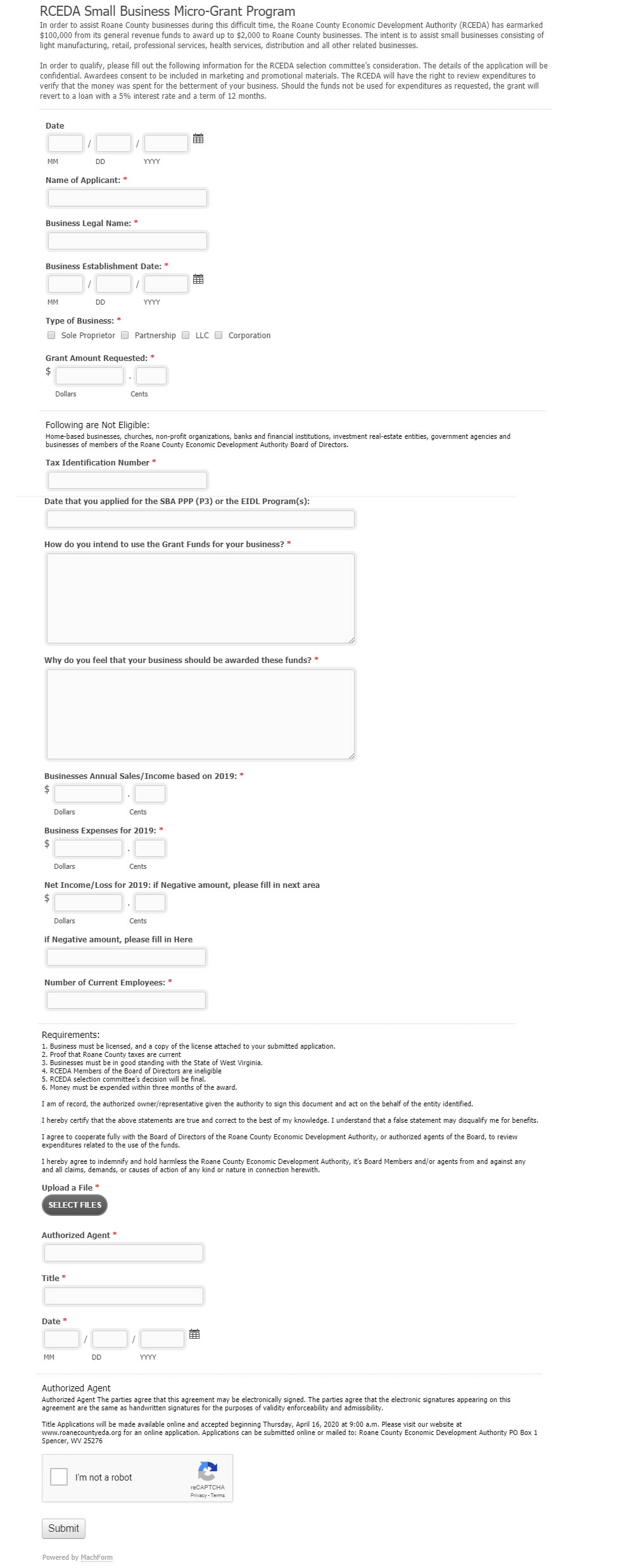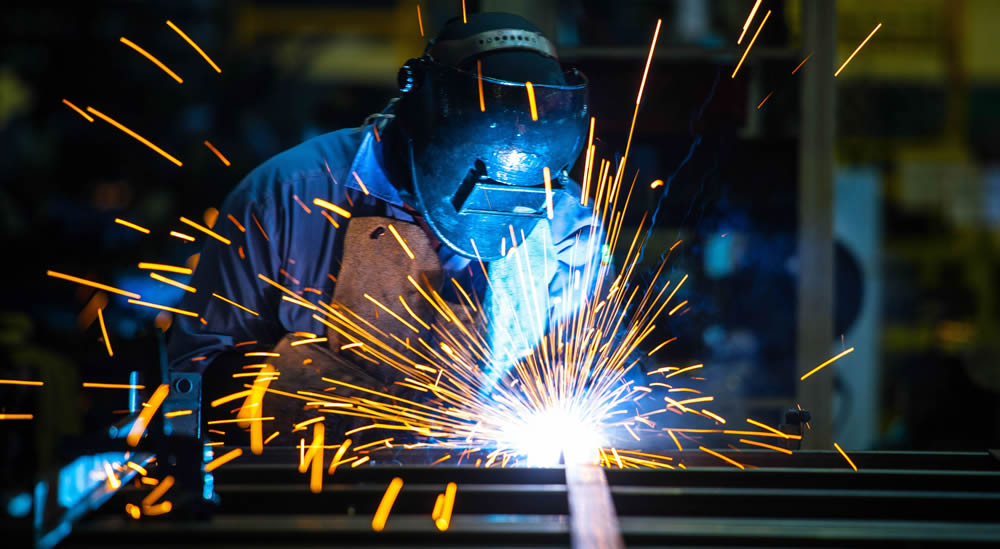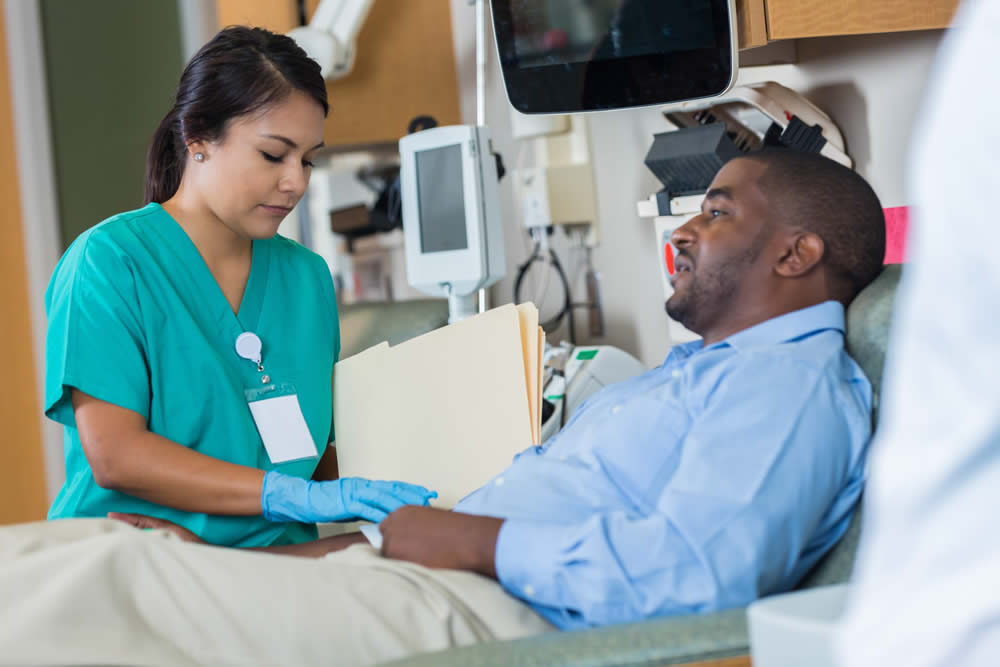Working with the State of West Virginia, Roane County can provide incentives and benefits allowing companies locating here to be established with less capital and with greater savings, both in the short and long term. Some of the available incentives include tax credits, low-interest loans, training grants, infrastructure improvements, as well as customized local inducements. The following are basic descriptions of the region’s incentive programs. We would be happy to meet with you and arrange meetings with your team and the West Virginia Development Office (WVDO) to explore potential incentive programs. These incentive programs are explained in more detail below.
LOCAL
- Reduced Price for land to build a new facility
- “At cost” building construction and lease back
- Buy down of lease cost on constructed facility
- Financing of equipment and building
For more information on the above incentives, please contact Roane County Economic Development Authority at (304) 927-5189
STATE
Corporate Headquarters Credit
Companies relocating their corporate headquarters to W. Va. from outside of W. Va. are eligible for tax credits. If 15 new jobs are created, the credit could be up to 100% of many tax liabilities for up to 13 years.
Economic Opportunity Credit
Offsets up to 100% of taxes for up to 13 years. Minimum job requirement is 20.
Manufacturing Investment Credit
Allows up to 60% corporate net income tax and franchise tax credit, based on investment, with no new job creation required.
Manufacturing Sales Tax Exemption
Materials and equipment purchased for direct use in manufacturing are exempt from the 6% state sales and use tax.
Aircraft Valuation
Special property tax valuation applies for 10 years to real property (excluding the value of unimproved land) and personal property of facilities that are or will be classified under the North American Industry Classification System (NAICS) with the six-digit code number 211112 (natural gas liquid extraction ``fractionating`` plants) and to manufacturing facilities that use products produced at a facility with a 211112 NAICS code.
The special property tax valuation applies to qualified capital additions of more than million made to pre-existing manufacturing facilities that have a value in place before the capital addition of more than million. The special property tax valuation is 5 percent of the cost of the qualified property instead of fair market value.
In the absence of a pre-existing manufacturing facility owned or operated by the person making the capital addition, multiple party projects may be established to meet the million pre-existing investment requirement.
The special property tax valuation applies to qualified capital additions of more than million made to pre-existing manufacturing facilities that have a value in place before the capital addition of more than million. The special property tax valuation is 5 percent of the cost of the qualified property instead of fair market value.
In the absence of a pre-existing manufacturing facility owned or operated by the person making the capital addition, multiple party projects may be established to meet the million pre-existing investment requirement.
Commercial Patent Incentives Credit
The Commercial Patent Incentives Tax Credit can offset up to 100 percent of the corporation net income tax, or in the case of individual taxpayers, the personal income tax. The credit is based on a percentage of royalties, license fees and other considerations for developers of a patent or a percentage of net profit attributable to a patent used in a manufacturing process or product when that patent has been developed in conjunction with an agreement with Marshall University or West Virginia University.
Corporate Headquarters Credit
Companies that relocate their corporate headquarters to West Virginia are eligible for tax credits if 15 new jobs (including relocated employees) are created within the first year. The credit can offset up to 100 percent of the tax liability for business and occupation tax, corporate net income tax, and personal income tax on certain pass-through income, for a period of up to 13 years.
Economic Opportunity Credit
For qualified companies that create at least 20 new jobs within specified time limits (10 jobs in the case of qualified small businesses) as a result of their business expansion projects, the State's Economic Opportunity Tax Credit can offset up to 80 percent of the corporate net income tax and personal income tax (on flow-through income only) attributable to qualified investment. If a qualified company that creates the requisite number of jobs pays an annual median wage higher than the statewide average non-farm payroll wage, then the qualified company can offset up to 100 percent of the corporate net income tax and personal income tax (on flow-through income only) attributable to qualified investment.
For qualified businesses creating less than 20 new jobs within specified time limits, or for a qualified small business creating less than 10 new jobs, a $3,000 credit is allowed per new full-time job for five years, providing the new job pays at least $32,000 per year and the employee has employer-provided health insurance benefits. The $32,000 figure is adjusted annually for cost of living.
Qualified businesses include only those engaged in the activities of manufacturing, information processing, warehousing, non-retail goods distribution, qualified research and development, the relocation of a corporate headquarters, or destination-oriented recreation and tourism.
The Freeport Amendment
The Freeport Amendment exempts property from the West Virginia ad valorem property tax in two ways. First, manufactured products produced in West Virginia and stored in the state for a short time before moving into interstate commerce are exempt from property tax. Second, goods transported into West Virginia from outside of the state, which are held for a short time in a warehouse and then shipped to a destination outside of West Virginia, are exempt from the property tax. The exemption does not apply to inventories of raw materials or goods in process.
Five for Twenty-Five Program - $2 Billion Primary (Fractionating) Plants, Secondary Plants and Tertiary Plants
For 25 years, qualified plants receive a special property tax valuation of five percent of the cost of the qualified property instead of fair market value.
Five for Ten Program - Fractionating Plants and Secondary Plants
Special property tax valuation applies for 10 years to real property (excluding the value of unimproved land) and personal property of facilities that are or will be classified under the North American Industry Classification System (NAICS) with the six-digit code number 211112 (natural gas liquid extraction ``fractionating`` plants) and to manufacturing facilities that use products produced at a facility with a 211112 NAICS code.
The special property tax valuation applies to qualified capital additions of more than million made to pre-existing manufacturing facilities that have a value in place before the capital addition of more than million. The special property tax valuation is 5 percent of the cost of the qualified property instead of fair market value. In the absence of a pre-existing manufacturing facility owned or operated by the person making the capital addition, multiple party projects may be established to meet the million pre-existing investment requirement.
High-Tech Manufacturing Credit
Businesses that manufacture certain computers and peripheral equipment, electronic components or semi-conductors and which create at least 20 new jobs within one year after placement of qualified investment into service, can receive a tax credit to offset 100 percent of the business and occupation tax, corporate net income tax, and personal income tax on certain pass-through income for 20 consecutive years.
High Technology Valuation Act (Data Centers)
Tangible personal property, including servers, directly used in a high-technology business or in an internet advertising business, is valued for property tax purposes at five percent of the original cost of the property. In addition, sales tax is eliminated from all purchases of prewritten computer software, computers, computer hardware, servers, building materials and tangible personal property for direct use in a high-technology business or internet advertising business.
Lodging Exemptions
For lodging stays in excess of 30 consecutive days per person at the same facility, there is an exemption from the state consumers sales and service tax (six percent) and exemption from the local hotel/motel tax (tax rate varies per region.)
Manufacturing Inventory Credit
Offsets the corporate net income tax in the amount of property tax paid on raw materials, goods in process and finished goods manufacturing inventory.
Manufacturing Investment Credit
A tax credit is allowed against up to 60 percent of corporate net income tax and based on qualified investment in eligible manufacturing property, with no new job creation required.
Manufacturing Sales Tax Exemption
Purchases of materials and equipment for direct use in manufacturing are exempt from the six percent state sales and use tax, including building materials and process equipment purchased for construction of a manufacturing facility.
Research and Development Sales Tax Exemption
Purchases of tangible personal property and services directly used in research and development are exempt from the consumer sales tax.
Sales Tax Exemption for Certain Warehouse and Distribution Centers
Purchases of certain tangible personal property in qualified warehouse and distribution centers may be exempt from the consumer sales and service tax.
The Tourism Matching Advertising Partnership Program
In order to extend advertising resources for the promotion of tourism through partnerships, this program provides reimbursable matching funds for direct advertising. Business applicants and their partners must provide a minimum of 50 percent of the total cost for programs at the, 000 + level. For programs not exceeding, 500, business applicants must provide 25 percent of the total cost.
West Virginia Film Industry Investment Act
Up to 31 percent of direct-production and post-production expenditures can be converted to transferable tax credits to offset state taxes. Also, purchases and rentals of tangible personal property and purchases of services (excluding gasoline or special fuel, food or beverages) directly used in the activity of manufacturing a motion picture, TV program, music video, or commercial are exempt from the consumer sales and service tax and use tax.
TAX CREDITS
The Historic Tax Credit (HTC)
The Historic Tax Credit (HTC) program encourages private-sector investment in the rehabilitation and re-use of historic buildings. The federal tax credit allows program participants to claim 20% of eligible improvement expenses against their federal tax liability.
The State of West Virginia offers a comparable historic tax credit of 25% that is able to be paired with the federal tax credit; therefore, an eligible project could qualify for up to 45% of tax credits for the renovation of a histrionic building.
The property MUST be a certified historic building and listed on the National Register of Historic Places
Click below for These Helpful Resources:
Historic Tax Credit Tool Kit -
Historic Tax Credit Interactive Road Map
New Market Tax Credits
The New Market Tax Credits (NMTC) Program attracts private capital into low-income and/or distressed communities by permitting individual and corporate investors to receive a tax credit against their federal income tax in exchange for making equity investments in specialized financial intermediaries called Community Development Entities (CDEs)
When utilized, NMTC can account for a 20-30% reduction in the overall cost of a project.
Read About the Ways We Can Offer Direct Financial Assistance.
Direct Loan Programs
The West Virginia Economic Development Authority can provide up to 45 percent in financing fixed assets by providing low-interest, direct loans to expanding state businesses and firms locating in West Virginia. Loan term is generally 15 years for real estate intensive projects and five to 10 years for equipment projects. Loan proceeds may be used for the acquisition of land, buildings, and equipment. Working capital loans and the refinancing of existing debt are not eligible.
Indirect Loans
The West Virginia Economic Development Authority provides a loan insurance program through participating commercial banks to assist firms that cannot obtain conventional bank financing. This program insures up to 80 percent of a bank loan for a maximum loan term of four years. Loan proceeds may be used for any business purpose except the refinancing of existing debt.
Industrial Revenue Bonds
This program provides for customized financing through federal tax-exempt industrial revenue bonds. Of the state's bond allocation, $59,757,600 is reserved for small manufacturing projects; $17,073,600 for qualifying projects in Enterprise Communities, and $93,904,800 for exempt facility projects.
West Virginia Infrastructure and Jobs Development Council
The fund can be used for financial assistance to private companies, public utilities, and county development authorities for infrastructure improvements to support economic development projects.
West Virginia Jobs Investment Trust
West Virginia Jobs Investment Trust (JIT) is a public venture capital fund created to develop, promote and expand West Virginia's economy. The program makes investment funds available to eligible businesses, thus stimulating economic growth and providing or retaining jobs within the state.
On the Job Training Opportunities.
Governor’s Guaranteed Work Force Program
The Governor’s Guaranteed Work Force Program (GGWFP) provides new and expanding businesses with technical and financial assistance to train, retrain and upgrade the skills of their employees. Overall funding levels are based on wages and benefits, location of facilities, number of employees and number of individuals needing training. Small businesses eligible for this program may receive up to 75 percent of actual training cost (maximum of $5,000) for preapproved technology, technical and regulatory compliance training. Since the program’s launch, more than $54 million has been awarded to employers and nearly 200,000 employees have received training.
http://westvirginia.gov/files/docs/ggwfp/ggwfp-annual-report-2017.pdf
Let’s Train WV
Let’s Train WV provides employers with access to a new pool of candidates with untapped potential to become highly-skilled, dedicated employees. It allows employers to train employees their way at their worksite. Employers receive paid training for employees up to 6 months, wage reimbursement up to $10,000 per eligible recipient and the ability to custom design training programs to meet specialized company needs.
Workforce Innovation & Opportunity Act
The Workforce Innovation and Opportunity Act (WIOA) was created to provide state and local areas the flexibility to collaborate across systems in an effort to better address the employment and skills needs of current employees, jobseekers, and employers. The Workforce Innovation and Opportunity Act aligns training with needed skills and matches employers with qualified workers. It provides incumbent worker training and promotes work-based training— increasing on-the-job training reimbursement rates to 75 percent. On-the-Job Training (OJT) provides opportunities for participants to ``learn as they earn.`` The employer also benefits by being reimbursed for part of the participant's wages during the training period, while having the services of a full-time employee.
West Virginia Advance Program
This flexible program offers customized job training awards to new and existing businesses. The program offers development and delivery of training services that will support a company's startup and ongoing employee development initiatives through a local Community and Technical College.



